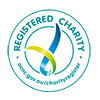In a world where words weave connections and communication bridges gaps, the significance of speech cannot be overstated. Yet, for individuals facing speech and language challenges, expressing themselves can be a daunting task. This is where the remarkable field of speech pathology or speech therapy, steps in, offering hope, guidance, and transformation. In this blog post, we talk about the world of speech pathology, exploring its vital role, what it entails, and the impact it has on individuals’ lives.
What is speech pathology?
Speech pathology is a specialised field dedicated to the assessment, diagnosis, and treatment of communication disorders. It encompasses various aspects of communication, including speech, language, voice, fluency, and swallowing. Speech pathologists, speech therapists or speech-language pathologists (SLPs), are highly trained professionals who work with individuals across different age groups, from children to adults, helping them overcome communication challenges and achieve their full potential.
What do speech pathologists do?
Speech pathologists play a pivotal role in improving an individuals’ quality of life by addressing a wide range of communication disorders. Here are some key areas in which speech pathologists excel:
- Assessment and Diagnosis: Speech pathologists conduct comprehensive evaluations to identify communication difficulties and determine the underlying causes. They employ a variety of assessment tools and techniques to assess speech clarity, language comprehension and expression, voice quality, fluency, and swallowing abilities.
- Customised Treatment Plans: Based on their assessments, speech pathologists develop personalised treatment plans tailored to the unique needs of each individual. These plans may include exercises, techniques, and strategies to improve speech production, enhance language skills, modify voice quality, promote fluency, and address swallowing disorders.
- Speech and Language Therapy: Speech pathologists employ evidence-based therapeutic techniques to improve speech articulation, language development, and communication skills. They work closely with clients, using a combination of exercises, games, visual aids, and assistive technologies to enhance their ability to communicate effectively.
- Voice Therapy: Speech pathologists assist individuals with voice disorders, helping them develop healthy vocal habits, improve vocal quality, and overcome issues such as vocal strain, hoarseness, or pitch problems. They may employ exercises, vocal hygiene practices, and vocal relaxation techniques to optimise voice production.
- Fluency Therapy: For individuals who experience fluency disorders, such as stuttering, speech pathologists provide specialised therapy to improve fluency and develop strategies for managing speech disruptions. They focus on techniques like breathing exercises, slowing down speech rate, and reducing tension to promote smooth and confident communication.
- Swallowing Therapy: Speech pathologists also address swallowing disorders, known as dysphagia, which can impact an individual’s ability to eat and drink safely. They work with patients to develop strategies to improve swallowing function and ensure adequate nutrition and hydration.
Speech pathology is an indispensable field that empowers individuals to overcome communication challenges and discover their true potential. With their expertise and compassionate approach, speech pathologists provide personalised assessments, tailored treatment plans, and invaluable support to individuals of all ages. Let us celebrate the remarkable work of speech pathologists who dedicate themselves to helping others find their voice and navigate the world of communication with confidence.
Speech pathology at Prince of Wales Hospital
The speech pathology service supports patients in hospital who have swallowing and communication problems including speech, voice and language difficulties. Their services at the hospital are located in different parts of hospital. To find out where to go please get in touch with them via phone on 02 9382 2883 or by emailing SESLHD-POW-SpeechPathology@health.nsw.gov.au .They are part of a wider allied health team to help patients across various disciplinaries including physiotherapy, occupational therapy, dieticians and social workers.
Please support our local hospital to continue their breakthrough research for better care and treatment.


